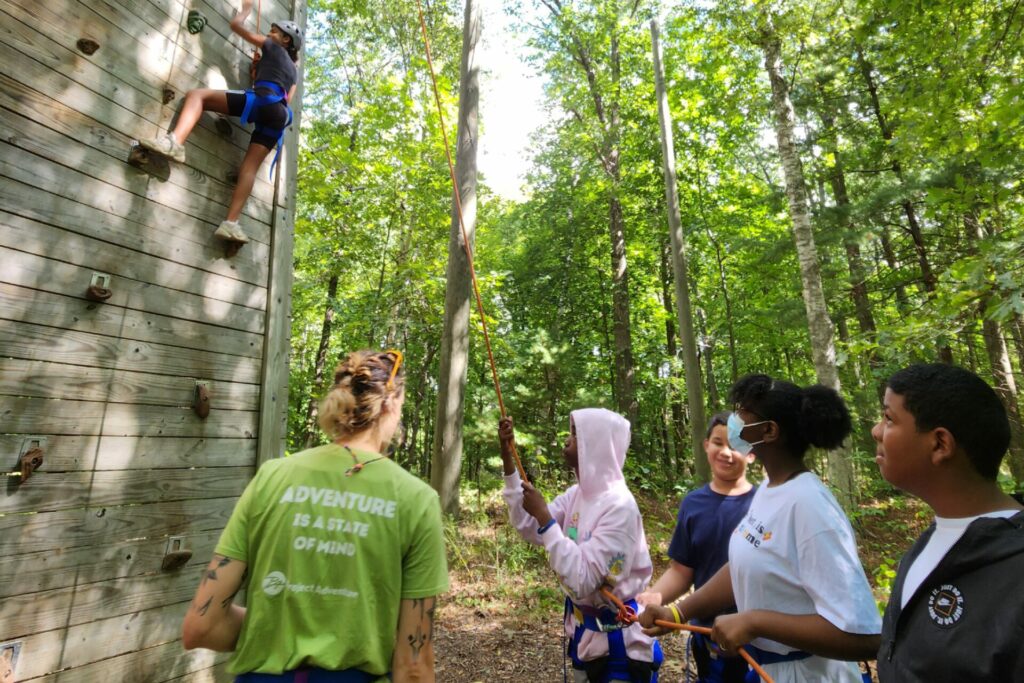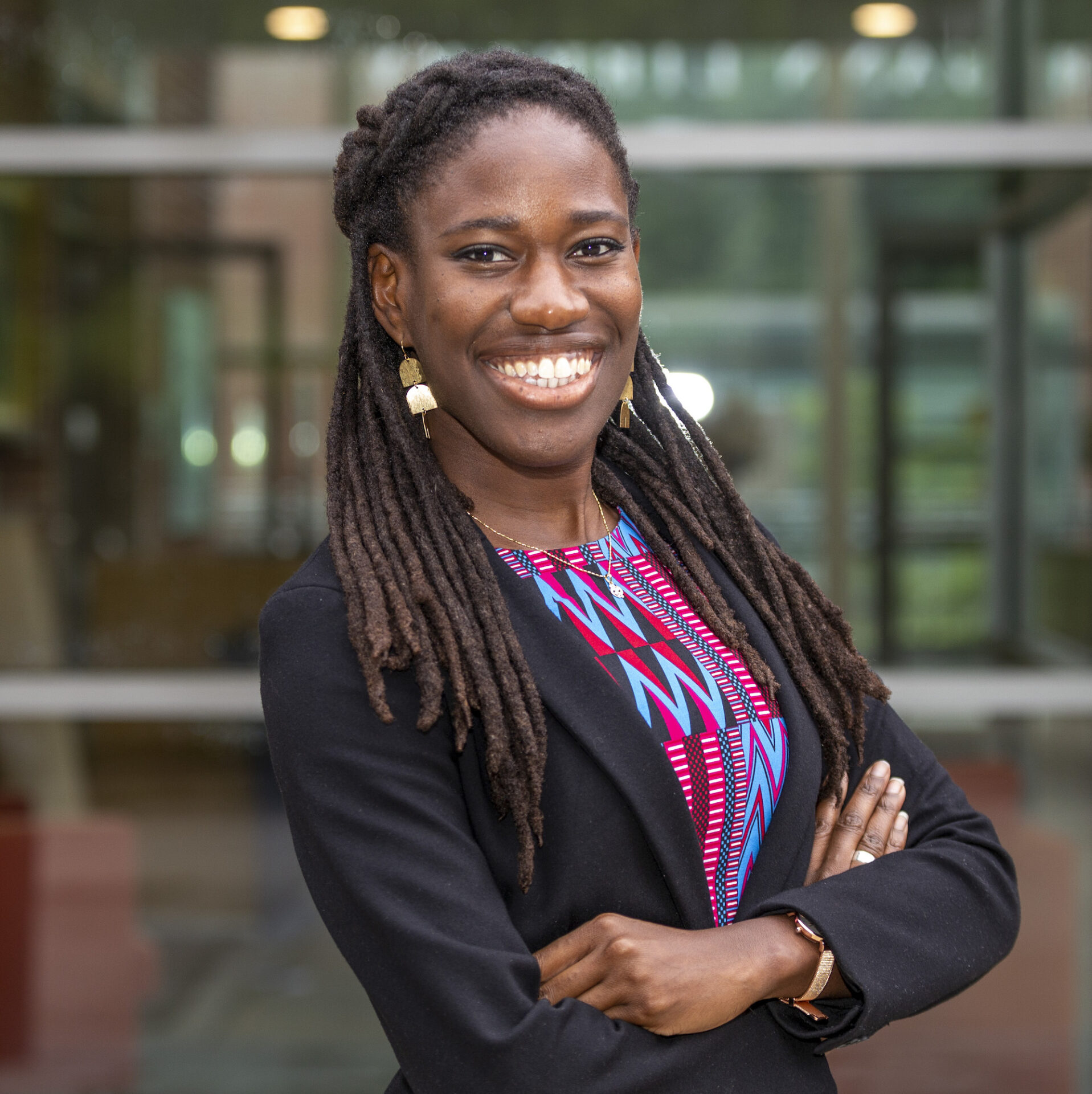Year one of the pilot has been an exercise in unlearning the status quo in order to rethink what is possible.
Anna Leonhard, Director of Program Development, WPS Institute
How many of us would say we loved our middle school years? If you could go back and change that experience, what would you want—more connection, more autonomy, more relevance? At WPS, we ask ourselves this question regularly.
WPS is an educational non-profit working to catalyze the shift to empowering, connected, and unbounded learning for all young people. Our vision is a thriving Education Everywhere Ecosystem where more and more forward-thinking schools, districts, and communities across the country engage in developing learning ecosystems that transform students’ experience in school and beyond. This vision led us to connect with the city of Salem, MA and Salem Public Schools.
“If you talk to young people, they will tell you how disengaged and uninspired they can be with school. Not everybody—school does work for some middle schoolers—but it doesn’t work for enough kids,” Salem Superintendent Stephen Zrike shared at a recent community forum. “The voices of our students, for me, were a point of urgency and led to conversations that then Mayor Driscoll, our Lt. Governor, and I had. We both fixated on the need to urgently think differently about middle school.” Research supports Superintendent Zrike’s observation: national surveys show that students in grades six through eight see the largest drops in engagement across the secondary years.
In the 2022–2023 school year, WPS established a partnership with Salem Public Schools to co-design and implement a community innovation pilot designed to help middle schoolers reengage and stay engaged with school. Collins Middle School, home to the pilot, is a Title 1 school serving just over 600 students in grades six to eight, located in the diverse coastal community of Salem, MA. Launching with 43 eighth-grade students, the goal of the pilot is to identify conditions that fuel connection, relevance, and belonging.
The pilot is grounded in a Student Impact Framework, focusing on three key areas:
- Connected learning: Students experience supportive relationships with teachers and peers. They learn in and from their wider community and create work that has an authentic purpose and audience beyond the classroom.
- Empowered learning: Students are aware of their interests and strengths, set personally meaningful goals, and take ownership of their learning.
- Unbounded learning: Students are consistently engaged and progressing academically, supported by tools and systems that allow them to work at an appropriate level of rigor and challenge. Students build skills, habits, and attitudes that enable their continued growth.
Conditions that Catalyze Iteration
The city of Salem is an extraordinarily dynamic environment for learning, with significant natural, cultural, and civic resources. At the same time, schools and students, particularly middle schoolers, face significant and long-standing challenges that were exacerbated by the COVID-19 pandemic.
As Michael B. Horn points out in his 2022 book, Reopen to Reinvent: (Re)Creating School for Every Child, the challenges Salem and so many other districts face are not “of any one person’s making, nor [are] they the fault of the people who work in schools today. Many of the challenges [are] the result of structures and processes that were designed long ago for a different age. These structures have become stuck in our world as ‘the grammar of schooling’ or ‘just the way school is.’” Under these conditions, students experience a lack of purposefulness, and educators feel the constraint of narrow definitions of academic success.
Iteration flourishes when challenges are viewed as opportunities and stakeholders coalesce around a bold vision. Superintendent Zrike and Massachusetts Lt. Gov Kim Driscoll (then mayor of Salem) demonstrated visionary leadership with their eagerness to create more equitable learning opportunities for the city’s young people. They rallied the support of the local teachers’ union, school committee, families, and students to establish the middle school pilot at Collins Middle School.
Key program features include:
- Rapid iteration cycles: Short “learning loops” informed by data to test micro-interventions
- Ongoing student feedback loop: Transcend Education’s Leaps Survey, student self-reflections, 1:1 interviews, focus groups, and co-analysis of data with students
- Intentional community building: Weekly whole group assembly, daily team time in small advisory groups, and family engagement
- Personalized learning: Student profiles; 1-on-1 check-ins; individualized pacing via online learning platforms and assignment rubrics
- Community embedded learning: Multi-week units of study with core partners (Salem State University, Ipswich River Watershed Association, and The Peabody Essex Museum)
- Design studio: Hands-on learning block 1-2x/week that engages students in solving complex challenges through collaboration and creativity
Iteration flourishes when challenges are viewed as an opportunity, and stakeholders coalesce around a bold vision.
Anna Leonhard, Director of Program Development, WPS Institute
A Year of Unlearning
Year one of the pilot has been an exercise in unlearning the status quo in order to rethink what is possible. We have seen first-hand the need for teachers and students to let go of certain ideas about what learning should look before they can fully pursue a more learner-centered approach to schooling.
Last September, we surveyed pilot students to find out how many agreed with this statement: “Overall, most of the time, I love school.” Only 24% of eighth-grade students responded with an affirmative. A deeper investigation revealed that learners did not feel a sense of belonging in the classroom: only 42% felt like a part of the community. Furthermore, eighth-grade students saw little connection between their education and life beyond the school day: just 27% agreed with the statement, “what we learn is often connected to life outside the classroom.”
As the first year of the pilot draws to a close, early feedback is promising. Over 50% of learners agree that “overall, they love school most of the time.” When asked if they feel a part of the community, 73% of learners said they agreed or highly agreed and 70% affirmed that what they learn is connected to life outside the classroom. While the pilot team is encouraged by the progress to date, we know there is more work to be done to create a more learner-centered middle school experience. As we look forward to pilot year two, here are some highlights of what we have unlearned along the way.
Unlearning Assumptions about Evaluation and Student Feedback
The design of the pilot is an iterative process, rooted in a robust practice of reflection and evaluation. Often, when schools implement student surveys, the interval between administration and analysis is too far apart for feedback to be integrated into learning design. With the support of a WPS team member who is regularly embedded in the pilot, the team solicits student reflections and feedback on a weekly basis and engages students in conversation about how their responses inform ongoing program design. The pilot also employs the highly-validated Transcend Leaps Survey to assess the impact on students in the areas of connection, relevance, agency, and engagement in learning. This data complements measurement tools already in use by the school district to paint a holistic picture of student baselines and growth.
Unlearning Assumptions about Where and How Learning Takes Place
One enabling condition that increased relevance for learners has been the opportunity to engage in sustained, community-based learning. One to two days each week, students ventured beyond the four walls of Collins Middle School to learn with community-based educators. After a visit to the Peabody Essex Museum, eighth-grader Gabby reflected, “In class, you learn about the Harlem Renaissance. But then when you really go and look at the photos of the people, read their stories that you didn’t get to read before, and you can look at artifacts… [it] gives you a bigger picture in your mind and makes you really think about it more and experience what it might have been like.”
Working with local nonprofits and cultural institutions in the city of Salem over multiple weeks was a new experience for both learners and community educators. “Don’t call it a field trip,” learners requested. The difference between one-off field trips and extended “learning immersions” is the opportunity to accelerate learning through relationships built over time.
Whether studying water conservation on the Ipswich River or learning local history with a representative at the Massachusetts Statehouse, these learning immersions encouraged learners and community members to expand perceptions about where and with whom learning can happen. We observed that reading, writing, and problem-solving were most relevant when applied to a real-world context and an authentic audience.
Unlearning the Silos between Middle School and Other Grades
Near-peer relationships are a core driver of connection and relevance in the pilot. In this case, the pilot’s middle schoolers engaged with college students, bringing increased purpose to their STEM and Humanities classwork. Through partnerships with Salem State’s Center for Civic Engagement and MIT’s Morningside Academy for Design, students in the pilot formed relationships and connected the work they are doing today to future learning and career pathways. College students found an opportunity to share their passions with an eager audience and to hone their facilitation and communication skills.
Through a partnership with a local elementary school, the eighth-grade pilot students had the opportunity to design math games for third-grade peers. Later in the year, they practiced human-centered design by planning a field trip for their elementary buddies. “I love helping my [third-grade] buddy,” shared Matt, when reflecting on the experience of mentoring younger learners. “He suffers with disabilities…he’s nonverbal. And he’s always talking to me, which is amazing.” Engagement with near peers enabled middle schoolers to view themselves in a new light as mentees, mentors, and learning coaches.
Unlearning Assumptions about the Goal of Learning
Students began the year with the assumption that learning was about figuring out the “one right answer” as quickly as possible. Learners associated school with predictability and narrow definitions of correctness. For many, open-ended projects felt frustrating.
Students credit the new Design Studio block with expanding their expectations for what learning can be. Several afternoons each week, students undertook a hands-on design project, such as building health wearable devices, with a small group of peers. Students realized that they knew learning was happening when they were asking their own questions, brainstorming solutions, and iterating with multiple prototypes. Maya, an eighth-grader, shared, “I like studio because it’s really engaging. You have to be hands-on, you have to really use your brain and think about situations and problems.” We found that leveraging design pedagogy fostered conditions where students are willing to take creative risks and develop their own approach to solution-finding. Another student named Patrick described their mindset shift this way: “[Studio] challenges your creativity. It gives you the opportunity to be yourself and make things you wouldn’t be able to do in a regular classroom. And you get lots of opportunities… you have to use your brain… And there isn’t one determined, set answer. There’s lots of variation in how we can do it.”
Conclusion
System-level transformation is no small task, and we’re proud that the city of Salem is taking steps to reimagine what learning looks like for the young people in their community. We’re excited to see this pilot continue and for more unlearning and iteration to come. As the pilot team prepares for a second year of unlearning, we invite you to ask the question along with us: “What does it take to build belonging and relevance in middle school?”

